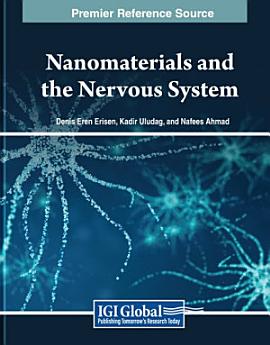Nanomaterials and the Nervous System
Über dieses E-Book
Amidst the excitement of scientific advancements, Nanomaterials and the Nervous System provides a critical analysis of nanoparticle-induced neurotoxicity. By dissecting the hazards associated with nanomaterials, it guides researchers, policymakers, and healthcare professionals in developing safer alternatives and regulatory frameworks. Moreover, it delves into speculative theories and conspiracy narratives, prompting crucial discussions on the ethical and societal implications of nanotechnology.
Bewertungen und Rezensionen
Autoren-Profil
Kadir Uludag holds Ph.D. in Applied psychology (Chinese Academy of Sciences). He is currently doing postdoc in Shanghai Jiaotong University Mental Health Center. His research interest includes schizophrenia research, drug addiction and educational psychology. In addition, he runs a website to share and comment on peer-reviewed articles (ifx0.com).
Nafees Ahmad obtained CAS-TWAS President's Fellowship Award in 2016 and completed his Ph.D. degree in Physical Chemistry under the supervision of Prof. Huiqiong Zhou from CAS Center for Excellence in Nanoscience, National Center for Nanoscience and Technology, Chinese Academy of Sciences. Then, he worked as a Research Fellow at Tsinghua-Berkeley Shenzhen Institute (TBSI), Tsinghua University. In 2021, he joined the research group of Prof. Liang & Prof. Fan as Postdoctoral Fellow at Shenzhen University and obtained Distinction Certificate in “National Postdoctoral Innovation & Entrepreneurship Competition. . [Editor]




